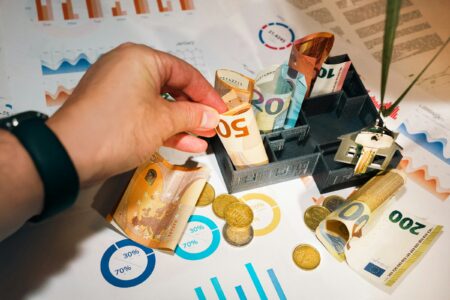15.03.2022
Significant ties between Cyprus and Russia have increased the risks of a deterioration in the economic prospects of the island in the medium term, according to a commentary from the rating agency DBRS.
DBRS Morningstar said that inbound tourism flows from Russia will be severely affected this year, and that the overall impact will continue to depend on the length and depth of the crisis.
In a review of the prospects for Cyprus, the DBRS commentary says that sanctions on Russia could be costly, as it notes that “the main transmission channels for Cyprus are tourism revenues and higher energy prices.”
The rating agency noted that in relation to the first channel, Russia has been the second largest source market for Cyprus since 2007 and the main market in 2021, accounting for approximately 27% of total tourist arrivals, playing a key role in a strong but still same partial rebound in foreign tourism last year.
In the period 2011-2019 the export of tourist services to Russia averaged 2.7% of GDP annually.
In response to the Russian invasion of Ukraine, on February 26, the EU announced the closure of its airspace to Russian aircraft and airlines, which was soon followed by Russia’s decision to close its airspace to EU countries, including Cyprus.
“The impact on the tourism industry will be higher if the restrictions are in place during the summer season, when the bulk of the influx of tourists to Cyprus usually occurs,” DBRS noted.
As for the second channel, although Cyprus’ dependence on Russian energy sources is low, households and firms face significantly higher energy costs, which affects real incomes. At the same time, uncertainty due to the war is likely to affect confidence and delay business decisions.
Airline Sanctions Will Cost 1.5-2% of GDP
DBRS Morningstar estimates that Cyprus will lose 1.5-2.0% of GDP in 2022 if the airspace closure remains in place throughout the year.
The report comes after a number of sectors in Cyprus reported losses from the war in Ukraine as the EU also imposed banking sanctions on Russia, excluding some Russian banks from SWIFT.
The island’s accountants and lawyers have said the island’s service sector will lose up to 15% of its business due to the war and sanctions.

Pieris Markou, chairman of the Institute of Chartered Accountants of Cyprus, said: “As a small economy that relies heavily on foreign investment and services, it is vulnerable to international developments, whether they are positive or not.”
“We must not forget that our economic model is based on attracting foreign investment. Therefore, when these companies cannot do business in Russia or Ukraine, the service sector will inevitably suffer.”
Marku added that some offshore firms are directly affected by banking sanctions because they do not have access to frozen assets or the banking system in Russia. Other firms dealing with these companies are also indirectly affected, as sanctions prevent transactions.
Marcu said it’s not just the financial services sector that is suffering. The industry has one of the highest economic multipliers: lawyers, taxi drivers, restaurants and bars.
In its report, DBRS notes that “financial services exports to Russia have increased in recent years and amounted to about 7% of GDP in 2020; however, this figure may be significantly inflated due to the presence of special purpose organizations with limited links to the domestic economy.”
Cyprus ‘more resilient’ than expected
DBRS Morningstar stressed that the agency believes that the Cypriot economy is more resilient than expected. Noting that the European Commission’s 4.1% growth forecast for Cyprus in 2022, released in February ahead of the invasion, now appears optimistic, DBRS praised the island’s economy for recovering faster than expected.
“This happened despite the importance of the travel and tourism sector to the economy as a whole, which accounted for 13.8% of total GDP in 2019, according to the World Travel and Tourism Council. The latest National Account data shows that Cyprus has already regained its pre-crisis level during the third quarter of 2021, and by the fourth quarter of 2021, output was already 1.4% above the pre-crisis level,” the agency notes.
DBRS also added that on an annualized basis, Cyprus’ GDP in 2021 increased by 5.5% in 2021 after falling by 5.0% in 2020.
It concludes by saying that, compared to pre-pandemic levels, significant growth in financial services (+17%), the information and communications sector (+12%), and the public administration, education and social work sectors (3%). helped offset the impact of pandemic-related restrictions on close contact services.
















